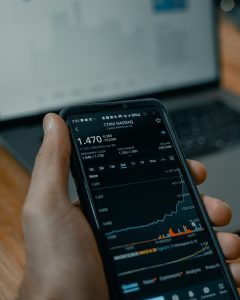Forex, short for foreign exchange, is a decentralized global market where currencies are traded. With an average daily trading volume of over $6 trillion, it is the largest and most liquid financial market in the world. Forex trading offers numerous opportunities for individuals to make profits, but it can also be a risky endeavor for beginners who lack a solid trading strategy. In this article, we will discuss how beginners can develop a forex trading strategy to increase their chances of success in the market.
1. Understand the Basics:
Before diving into forex trading, it is essential for beginners to understand the basics. Familiarize yourself with common forex terms such as pip, lot size, leverage, margin, and spread. Learn about the different currency pairs and their characteristics. Gain knowledge about the factors that influence exchange rates, such as economic indicators, geopolitical events, and central bank policies. The more you educate yourself about the forex market, the better equipped you will be to develop a trading strategy.
2. Determine Your Trading Goals and Risk Tolerance:
Every trader has different goals and risk tolerances. Some traders may be looking for quick profits, while others may prefer a long-term investment approach. Decide what your trading goals are and how much risk you are willing to take. This will help you in formulating a trading strategy that aligns with your objectives. It is crucial to have realistic expectations and not to be driven solely by the desire for huge profits.
3. Choose the Right Trading Style:
Forex trading offers various trading styles, such as day trading, swing trading, and position trading. Day trading involves opening and closing trades within the same day, while swing trading and position trading have longer timeframes. Each trading style requires a different approach and mindset. Beginners should choose a trading style that suits their personality, available time, and risk tolerance. It is advisable to start with longer timeframes, as they allow for more extensive analysis and reduce the impact of market noise.
4. Technical Analysis vs. Fundamental Analysis:
There are two primary methods of analyzing the forex market: technical analysis and fundamental analysis. Technical analysis involves studying historical price patterns, chart patterns, and indicators to predict future price movements. Fundamental analysis, on the other hand, focuses on economic and political factors that drive currency valuations. Both approaches have their merits, and many successful traders use a combination of both. Beginners should familiarize themselves with the basics of both types of analysis and choose the one that resonates with them.
5. Develop a Trading Plan:
A trading plan is a written document that outlines your trading strategy, including entry and exit points, risk management rules, and money management guidelines. It helps you stay disciplined and avoid impulsive trading decisions. Your trading plan should be based on your analysis and trading style. It is essential to backtest your trading plan on historical data to ensure its effectiveness. As a beginner, it is natural to make mistakes, but having a trading plan will help you minimize them and stay focused on your strategy.
6. Practice with a Demo Account:
Before risking real money, it is crucial for beginners to practice trading with a demo account. A demo account allows you to trade in a simulated environment with virtual money. It helps you understand the mechanics of the trading platform, test your trading strategy, and gain practical experience without any financial risk. Treat your demo account as seriously as you would a real account and trade with the same discipline and risk management rules.
7. Continuously Learn and Adapt:
Forex trading is a dynamic field, and it is essential to continuously learn and adapt to market conditions. Stay updated with economic news, market trends, and changes in trading regulations. Attend webinars, read books, and follow reputable forex educational websites and forums. Surround yourself with experienced traders and learn from their experiences. Be open to adapting your strategy based on market feedback and your own trading performance.
In conclusion, developing a forex trading strategy is crucial for beginners to navigate the complex world of forex trading. By understanding the basics, setting clear goals, choosing the right trading style, and utilizing both technical and fundamental analysis, beginners can develop a solid trading plan. Practicing with a demo account and continuously learning and adapting will further enhance their chances of success in the forex market. Remember, forex trading is a journey, and patience, discipline, and perseverance are key to long-term profitability.






